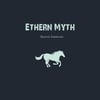I recently started reading up about the Rust programming language. I've read a lot of cool stuff about it, and I've decided to blog my journey through the process of learning Rust.
As far as I've read, Rust follows a completely different model, with regards to sharing of variables, with the concept of owner, borrowing and shared borrows. It also statically checks programs for memory leaks and data race conditions, so you know your program is free of such insidious bugs, if it compiles successfully.
I've read that it also gives pleasant helpful error messages. I've dealt with and diagnosed long error logs such as template meta-programming bugs in C++, so I have firsthand experience in being at the receiving end of the compiler vomiting volumes of information at you. I'm curious to see how the Rust compiler's error messages are in terms of their description and accuracy.
So, at the outset, I've set my learning path as follows:
- The Rust series from Microsoft Developer channel on YouTube
- Rust In Action - Systems programming concepts and techniques By Tim McNamara
- The Rust Programming Language (Covers Rust 2018) by Steve Klabnik and Carol Nichols
- Programming Rust, 2nd Edition by Jim Blandy, Jason Orendorff, Leonora F.S. Tindall
I plan to go through each resource sequentially, while also solving all the exercises in each one. I estimate that this whole process would take me about 6 months.
As any curious reader would notice, I've not mentioned the primary resource for Rust: The Book. I plan to keep this resource as my main reference as I go through the learning process.
Update: (11/08/2021)
As noted out by @vorfeedcanal , the book The Rust Programming Language (Covers Rust 2018)
by Steve Klabnik and Carol Nichols is actually the printed version of The Book.
I've decided to refer the The Book, as being the web version, it will be continually updated.
You can find more details about this here.
How do I Apply What I Learn?
As I start off, I plan to apply what I learn in solving competitive programming questions on CodeForces. I've solved question from there before, and written 2 blogs on them as well, here on dev.to.
I'll restart blogging about solving CodeForces questions, but I'll switch my language from Modern C++ to Rust, so that I can really dive into learning this new language.
In addition, solving the questions and exercises in the different material I read, will be important. I'll maintain a GitHub repository for each resource I work on, to keep everything in sync.
So When Do I Start?
I have already started working through the Microsoft Developer series on YouTube, which I plan to finish a little more than halfway by August 19th, Thursday. I'll add another blog post then, to update my progress and share what I learnt.
Onwards and Upwards! ...






Oldest comments (2)
"The Rust Programming Language (Covers Rust 2018) by Steve Klabnik and Carol Nichols" is, actually, "The Book" in printed form. Just so you know.
And yes, it's really a great book, highly recommended.
Hi 👋
Thank you so much for sharing that point! I learnt something new today 😄
I have a question, in your opinion should I refer to "The Book" (i.e. the web version) and skip the printed version (i.e. "The Rust Programming Language (Covers Rust 2018) by Steve Klabnik and Carol Nichols"), because the "The Book" would have been updated with more details/corrections, by now?
Thanks,
Rishit.C
P.S. I'll definitely do better homework, for the next blog coming out on the 13th. Looking forward to your feedback!